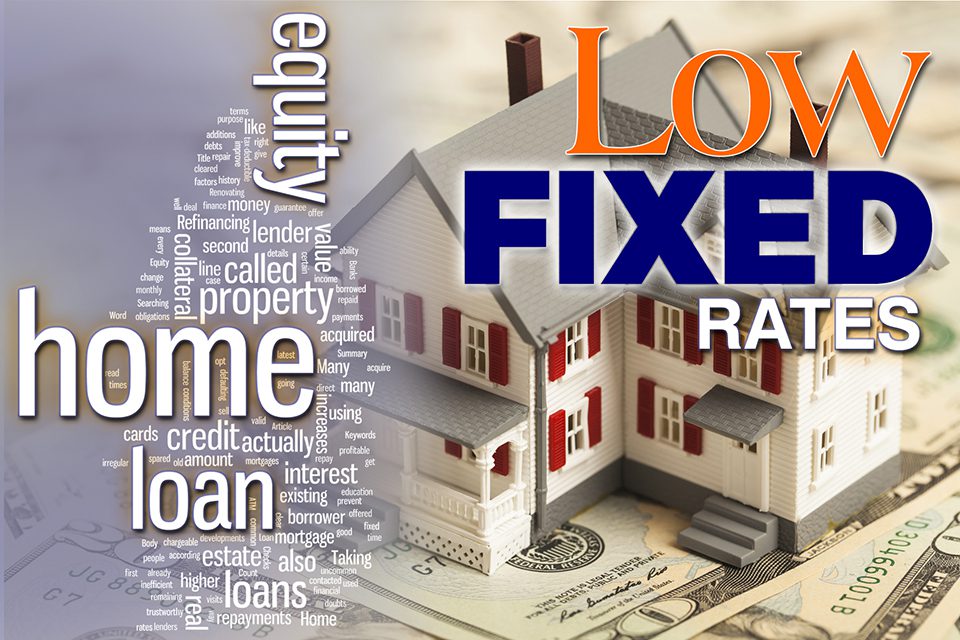Checking Out the Different Kinds of Equity Release Mortgages Available Today
Equity Release mortgages present different options for house owners aged 55 and over. equity release mortgages. These financial items satisfy different demands and choices, enabling individuals to gain access to funds from their home. From life time mortgages to common recognition mortgages, each type provides unique advantages. Understanding these alternatives is important for making informed decisions. What variables should one take into consideration when picking the most ideal equity Release plan? The details that follow may clarify this important topic
Comprehending Equity Release Mortgages
Equity Release mortgages give homeowners, commonly those aged 55 and over, with a way to access the value connected up in their home without requiring to market it. This economic choice enables individuals to convert a part of their home equity right into cash, which can be utilized for various objectives, such as home renovations, paying off financial debts, or financing retirement.Equity Release can take various kinds, but it essentially involves loaning against the value of the home while preserving possession. House owners can select to get a swelling sum or a collection of smaller payments, depending on their financial demands and preferences.Additionally, the quantity available for Release is influenced by the residential or commercial property's worth, the homeowner's age, and specific loan provider standards. Overall, understanding equity Release mortgages is essential for house owners to make educated choices about taking advantage of their home's equity while thinking about the long-lasting implications.
Lifetime Mortgages
Lifetime home mortgages represent one of the most popular kinds of equity Release. This economic product permits house owners, usually aged 55 or older, to obtain against the value of their residential or commercial property while keeping ownership. The car loan, which is protected against the home, builds up passion with time yet does not call for monthly settlements. Rather, the car loan and accumulated passion are repaid when the home owner passes away or moves into lasting care.Lifetime home mortgages use flexibility, as debtors can select to obtain a lump amount or decide for a drawdown facility, accessing funds as needed. Significantly, numerous strategies featured a no-negative-equity guarantee, making sure that debtors will certainly never ever owe more than the worth of their home. This feature supplies assurance, enabling individuals to enjoy their retirement without the concern of depleting their estate. Generally, lifetime mortgages offer as a viable alternative for those looking for financial backing in later life.
Home Reversion Plans

Drawdown Life Time Mortgages
While lots of house owners seek methods to access their riches, drawdown lifetime home loans offer an adaptable choice that enables individuals to Release funds progressively. This kind of equity Release home mortgage allows home owners to obtain versus the value of their home while retaining possession. Unlike traditional life time mortgages, drawdown plans enable debtors to access a part of their equity upfront and take out added funds as required, up to a fixed limit.This feature can be particularly advantageous for those who desire to manage their financial resources thoroughly, as it lessens interest buildup by only charging interest on the amounts drawn. Furthermore, drawdown life time home loans frequently feature a "no unfavorable equity guarantee," making certain that debtors will never ever owe even more than their home's worth. This choice matches senior citizens who prefer financial security and versatility, allowing them to satisfy unforeseen expenditures or keep their way of life without having to sell their home.
Boosted Lifetime Mortgages
Boosted Lifetime Mortgages use unique advantages for eligible property owners looking for to Release equity from their residential or commercial properties. Recognizing the qualification standards is necessary, as it identifies that can take advantage of these specialized financings. It is likewise important to assess the possible disadvantages associated with improved options, making sure an all-round viewpoint on their usage.
Qualification Requirements Explained
Comprehending the eligibility standards for Enhanced Lifetime Mortgages is vital for possible candidates looking for to access the equity in their homes. Commonly, applicants need to be aged 55 or older, as this age demand is conventional in the equity Release market. House owners must possess a home valued at a minimum threshold, which can vary by lender. Significantly, the home must be their main house and in excellent problem. Lenders typically evaluate the homeowner's wellness status, as specific health problems may boost eligibility and advantages. Furthermore, candidates must not have existing considerable financial obligations secured versus the building. Satisfying these requirements enables people to check out Enhanced Life time Home loans as a sensible choice for accessing funds locked up in their homes.
Benefits of Boosted Home Mortgages
After clearing up the eligibility requirements, it comes to be obvious that Enhanced Life time Home loans provide a number of considerable benefits for home owners aiming to take advantage of their residential or commercial property equity. Primarily, they offer accessibility to a bigger financing amount contrasted to common lifetime home mortgages, benefiting those with health conditions or age-related factors that boost their life span danger. This boosted loaning capability allows property owners to fulfill different economic requirements, such as home improvements or retirement expenditures. Furthermore, these home loans usually come with flexible settlement alternatives, enabling borrowers to handle their financial resources much more effectively. The no-negative-equity guarantee better guarantees that house owners will certainly never ever owe even more than their residential or commercial property's worth, providing tranquility of mind. On The Whole, Boosted Life time Home loans provide a compelling alternative for eligible home owners looking for financial options.
Prospective Disadvantages Thought About
While Boosted Life time Home mortgages offer many benefits, possible drawbacks call for cautious consideration. One significant problem is the influence on inheritance; the equity launched decreases the value of the estate entrusted to recipients. In addition, these home loans can accumulate considerable interest with time, causing a substantial financial debt that might exceed the initial financing quantity. There may additionally be more tips here limitations on home modifications or rental, restricting property owners' flexibility. Improved items often need certain wellness conditions, indicating not all home owners will certainly certify. Lastly, managing the costs and charges related to these home mortgages can be complex, potentially causing unanticipated prices. Consequently, individuals must thoroughly analyze their situation and get in touch with financial consultants before continuing.
Shared Admiration Home Mortgages
Shared Gratitude Mortgages stand for an unique monetary setup that permits property owners to gain access to equity while sharing future property value enhances with the loan provider. This strategy supplies prospective benefits such as decreased month-to-month payments, but it likewise includes disadvantages that have to be meticulously considered. Understanding the eligibility needs is important for those interested in this alternative.
Idea Summary
Equity Release home mortgages, specifically in the form of common gratitude mortgages, offer house owners a distinct financial service that enables them to gain access to funds by leveraging the value of their building. In this plan, a lender provides a financing to the homeowner, which is usually paid off via a share of the property's future recognition in value. This indicates that when the house owner offers the home or passes away, the lender obtains a percentage of the raised worth, instead of just the initial funding quantity. Shared gratitude home loans can be appealing for those looking to supplement their earnings or finance substantial expenditures while retaining possession of their home. Nevertheless, the financial ramifications of shared recognition need to be meticulously taken into consideration by possible consumers.
Advantages and Downsides
Although shared gratitude home loans can give significant financial benefits, they likewise feature notable disadvantages that possible debtors should think about. These mortgages permit property owners to access equity in their buildings while sharing a section of any kind of future admiration with the lending institution. This arrangement can be useful throughout times of climbing residential property values, offering significant funds without regular monthly repayments. Nonetheless, the main disadvantage is the prospective loss of equity; house owners might finish up with appreciably minimized inheritance for heirs. Furthermore, the complexity of the terms can result in misconceptions regarding payment commitments and the portion of recognition owed. Consequently, it is crucial for customers to consider these factors very carefully before committing to a shared recognition home mortgage.
Qualification Demands
What standards must homeowners fulfill to qualify for a common gratitude home mortgage? Mostly, prospects must be at least 55 years old, assuring they are within the target group for equity Release products. In addition, the residential property has to be their main house and normally valued above a specified minimum limit, often around ? 100,000. Lenders likewise analyze the house owner's monetary situations, consisting of revenue and exceptional financial debts, to ascertain they can manage the home loan sensibly. Significantly, the residential property should be in good problem and without considerable lawful encumbrances. Homeowners ought to likewise have a clear understanding of the terms, consisting of just how appreciation will be shown the lending institution upon sale or transfer of the property, as this influences total returns.
Picking the Right Equity Release Choice

Regularly Asked Concerns
What Age Do I Need to Be for Equity Release?
The age need for equity Release commonly starts at 55 for most plans. Some providers may offer alternatives for those aged 60 and above, mirroring varying terms based on specific situations and loan provider policies.
Will Equity Release Influence My Inheritance?
Equity Release can affect inheritance, as the amount obtained plus passion minimizes the estate's value. Beneficiaries might obtain less than expected, depending upon the residential property's admiration and the complete debt at the time of passing.
Can I Relocate Home With Equity Release?
The inquiry of relocating home with equity Release occurs frequently. Usually, individuals can move their equity Release plan to a new residential or commercial property, but particular conditions might use, requiring assessment with the loan provider for guidance.
Exist Fees Related To Equity Release Mortgages?
Fees connected with equity Release mortgages can include arrangement costs, appraisal charges, and lawful expenses. Furthermore, there may be very early repayment fees, which site can influence the overall expense and economic implications for the customer.
Exactly How Does Equity Release Influence My Tax Situation?
Equity Release can impact one's tax obligation scenario by possibly enhancing taxed revenue, as released funds are considered funding. It normally does not sustain prompt tax liabilities, making it vital to seek advice from an economic expert for personalized advice.
Verdict
In recap, the selection of equity Release home mortgages available today provides home owners aged 55 and over multiple paths to access their building's worth - equity release mortgages. Whether going with a life time mortgage, home reversion strategy, or various other options, each alternative provides unique advantages customized to private monetary requirements. Cautious factor to consider and examination with an economic consultant are vital to guarantee the chosen equity Release option straightens with individual goals and monetary conditions, ultimately promoting informed decision-making for a safe and secure economic future. Equity Release home loans present numerous choices for house owners aged 55 and over. Equity Release home mortgages supply house owners, usually those aged 55 and over, with a way to access the worth linked up in their residential or commercial property without needing to market it. Boosted Life time Home mortgages supply distinctive benefits for eligible property owners seeking to Release equity from their residential or commercial properties. Equity Release home loans, specifically in the type of common appreciation home mortgages, offer home owners an one-of-a-kind economic option that allows them to accessibility funds by leveraging the value of their building. In summary, the range of equity Release home mortgages readily available today offers homeowners aged 55 and over multiple pathways to access their residential or commercial property's worth
Comments on “Pros and Cons of Using Equity Release Mortgages as a Senior”